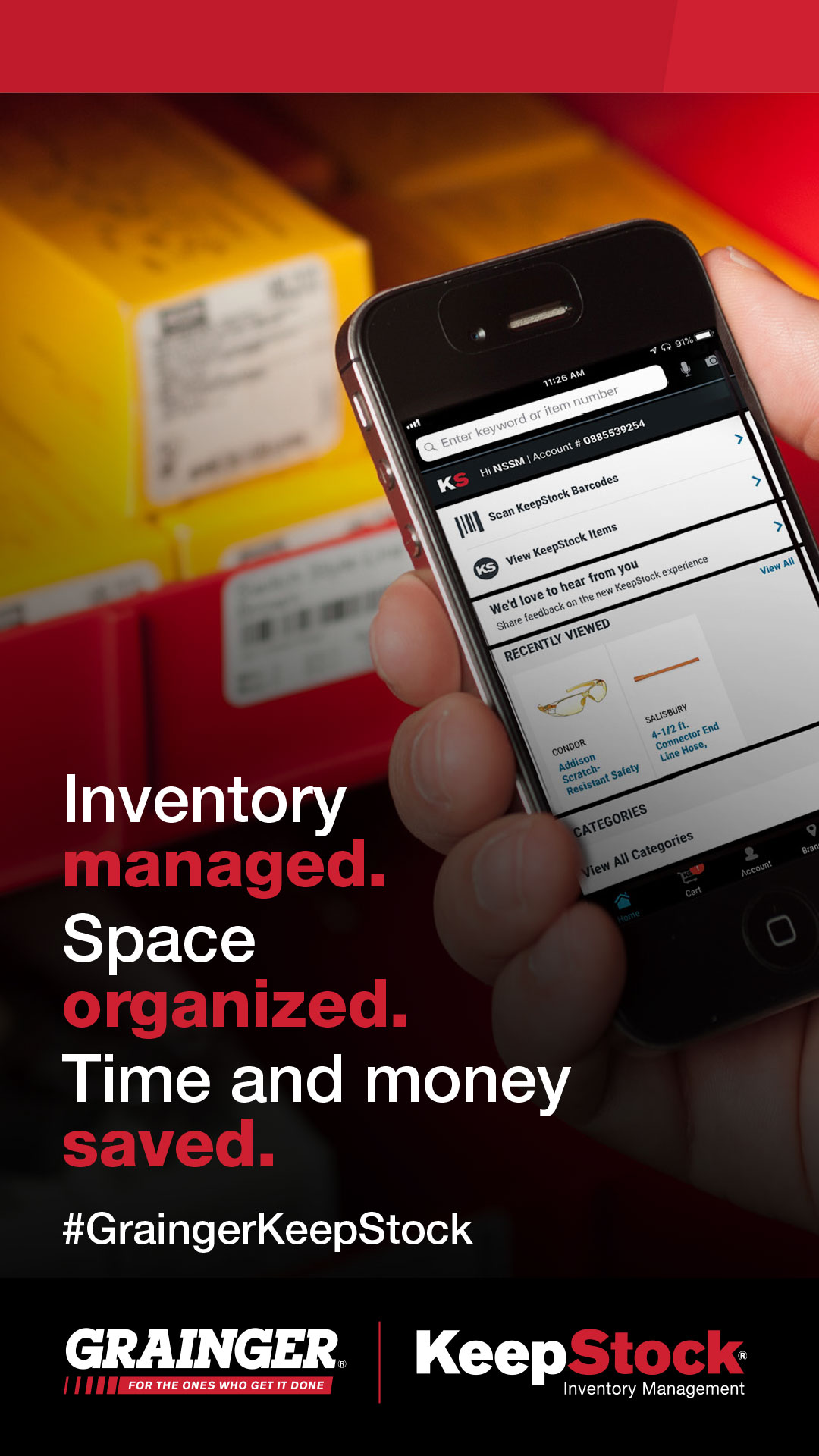

How Good Inventory Management Helps the Cubs Cover Their Bases
By Grainger Editorial Staff 1/15/21
Running a customer-centered business safely and efficiently is a team effort. This is true for any organization, but is particularly relevant for the Chicago Cubs as they focus on the fan experience.
“Inventory management here is critical," said Patrick Meenan, Vice President of Facilities and Supply Chain Operations for the Chicago Cubs. "Our guests expect a certain level of experience when they come here, and we want to deliver on that expectation."
The Cubs use KeepStock Inventory Management from Grainger. The system helps the organization keep critical inventory items on hand, ensuring the right parts, tools and supplies are in the right place when needed.
Before implementing the system, the Cubs kept items all over the Wrigley Field facility. Storage is limited at the Cubs' facilities, so the organization worked with Grainger to find more efficient ways to order and store items. The improvements that the Cubs applied demonstrate key aspects of a well-run inventory management system:
- Easy Access to the Most Needed Inventory
Storing fast-moving items at or near their employees’ point of need was a significant improvement. Vending machines offer secure 24/7 access to key items at their point of use. Employees spend less time searching for products and more time getting work done. The new system made it easier for employees to find what they needed, when they needed it and always kept the most critical items on-hand.
- Automatic Restocking of Recurring Inventory Needs
As Anthony Spatafora, an Engineering Administrator for the Cubs, explained, “What KeepStock does for us is it gives us the opportunity to focus on some of the bigger picture items. It allows us to let those smaller items, the day-to-day objects, to be already in stock, then we can focus on the larger projects that come down the chute every week.” The Replenish option sets a pre-determined schedule for restocking, and also reduces concerns about overstocking and unauthorized purchasing.
- Customer Control of Inventory Purchases
Customer managed inventory (CMI) puts inventory management and visibility into the hands of customers. For example, KeepStock CMI offers digital tools via mobile app and desktop technologies. The tools help streamline the purchasing process by managing users and approvals. The CMI also offers data to guide purchasing decisions by setting minimum and maximum order levels, and guidance about when to reorder.
- Outsourcing Options for Time-Sensitive inventory Needs For businesses with large or complex environments, it can help to outsource maintenance, repair and operations (MRO) materials management. With KeepStock Managed, inventory specialists provide daily onsite support for MRO tasks. KeepStock Onsite offers a dedicated resource to manage all Grainger materials. This can include a defined storage space, dedicated support and an onsite presence that ensures a business has the inventory it needs, when and where it's needed.
As an organization expands, inventory management and control become more critical. “As a team that's been growing rapidly over the last five years, we've been having to implement lots of new processes, lots of new operations and lots of new technology,” Meenan noted. He appreciates the ability of Grainger to help the Cubs organization manage those challenges. “Grainger has been someone that's been working with us hand-in-hand helping us to scope those opportunities, come up with solutions to solve them and really give us a perspective that we lacked internally.”
Learn more about KeepStock Inventory Management solutions.
![]()
The information contained in this article is intended for general information purposes only and is based on information available as of the initial date of publication. No representation is made that the information or references are complete or remain current. This article is not a substitute for review of current applicable government regulations, industry standards, or other standards specific to your business and/or activities and should not be construed as legal advice or opinion. Readers with specific questions should refer to the applicable standards or consult with an attorney.








